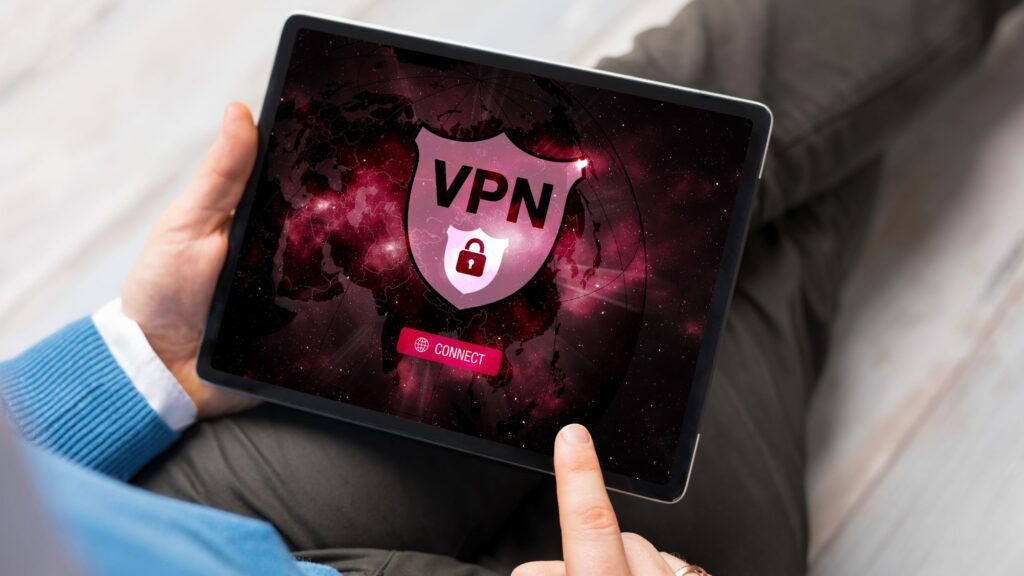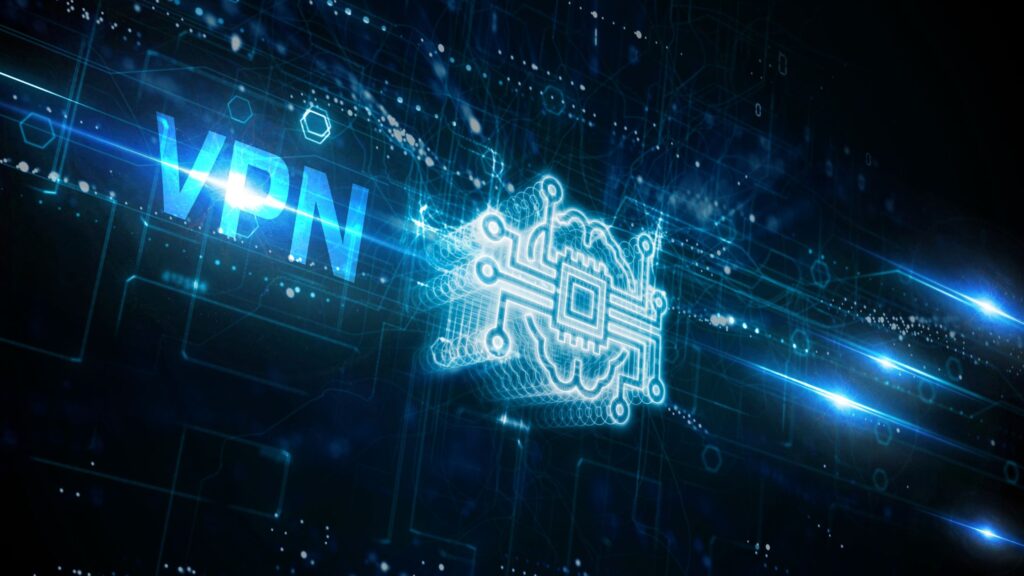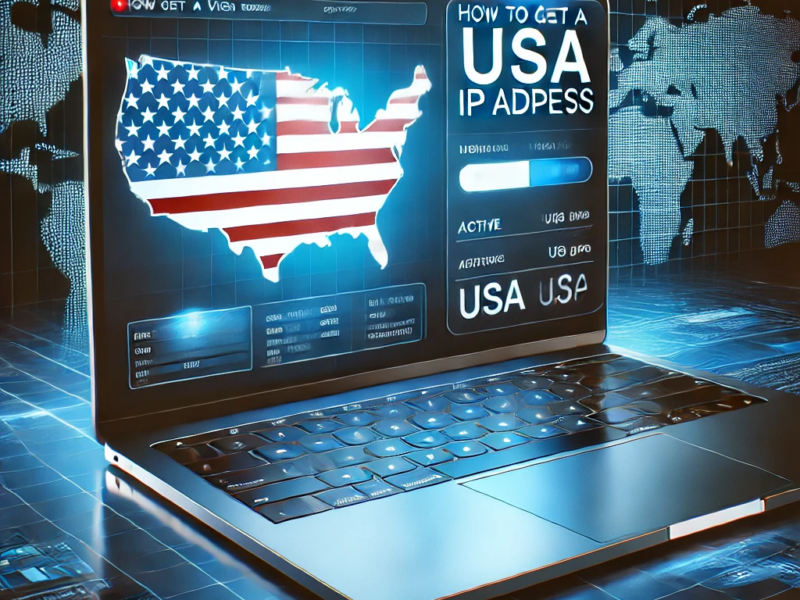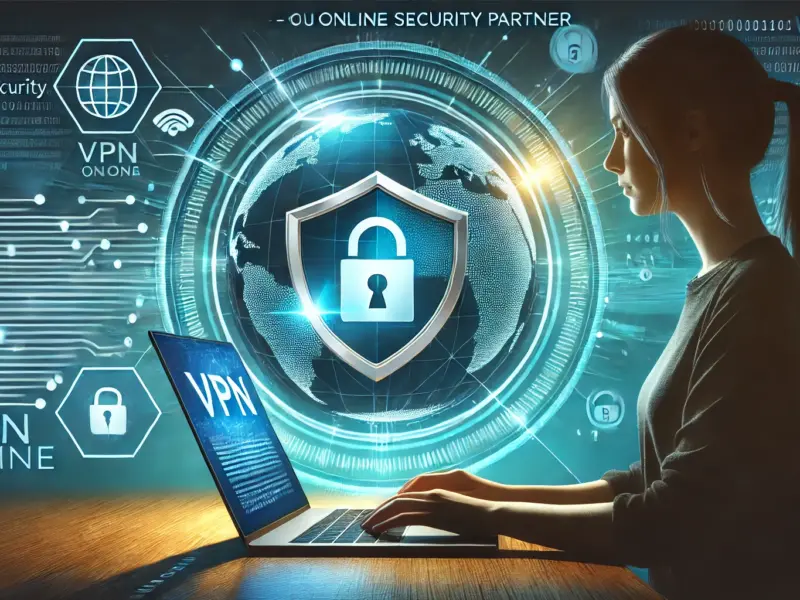Are you tired of feeling vulnerable to hackers in the online world? Well, worry no more because a VPN can be your solution! In this article, we will explore whether a VPN can protect you from hackers and give you the freedom you desire.
We’ll discuss the basics of VPNs and online security, uncover the threats posed by hackers, and understand how a VPN works to safeguard your data.
However, it’s important to remember that while a VPN is powerful, it does have limitations.
So, let’s discuss the best practices for strengthening your online security and staying ahead of hackers.
The Basics of VPNs and Online Security
A VPN is a vital tool for safeguarding your online activities from hackers. It creates a secure tunnel between your device and the internet, encrypting your data to prevent cyber attackers from deciphering it. By connecting to a VPN server, your internet traffic is routed through that server, masking your real IP address and making it challenging for anyone to trace your online actions back to you. This level of anonymity allows you to browse the internet freely and privately, without worrying about your personal information falling into the wrong hands.
But how does a VPN actually protect you from hackers? By encrypting your data, a VPN ensures that even if hackers intercept your internet traffic, they won’t be able to make sense of it. This means that sensitive information like passwords, credit card details, and personal messages remain secure and inaccessible. Additionally, a VPN shields you from malicious websites and phishing attempts by blocking access to them and issuing warnings about potential threats.
In today’s world, where online privacy is constantly under threat, using a VPN is essential for maintaining our freedom and security. Whether you’re accessing public Wi-Fi networks, conducting online banking transactions, or simply browsing the web, a VPN provides peace of mind, knowing that your personal information is safe from prying eyes.

Understanding the Threats Posed by Hackers
To truly grasp the dangers presented by hackers, it’s essential to recognize the tactics they use to exploit vulnerabilities in your online security. Hackers are constantly evolving and developing new methods to infiltrate your devices and steal your personal information.
Here are some common tactics employed by hackers:
- Phishing: Hackers send deceptive emails or messages to trick you into revealing sensitive information.
- Malware: Hackers use malicious software to gain unauthorized access to your device and steal your data.
- Brute Force Attacks: Hackers attempt to crack passwords by systematically trying every possible combination.
- Man-in-the-Middle Attacks: Hackers intercept your communication and secretly eavesdrop on or alter the messages being exchanged.
- DDoS Attacks: Hackers overload a website or network with traffic to disrupt its normal function.
By understanding these tactics, you can better protect yourself against potential threats. It’s crucial to stay vigilant and implement strong security measures such as using a VPN, regularly updating your software, and employing strong, unique passwords for all your accounts.
Remember, your online freedom and privacy are at stake, so it’s important to take proactive measures to safeguard your digital life.
Online security isn't just about protecting your personal information; it's about safeguarding your online freedom and privacy.
How a VPN Works to Protect Your Data
A VPN ensures the security of your data by establishing a safe and encrypted connection between your device and the internet. This means that any information you send or receive while using a VPN is shielded from potential hackers or prying eyes.
When you connect to the internet through a VPN, your data is first encrypted and then transmitted through a secure tunnel. This ensures that even if someone intercepts your data, they won’t be able to comprehend or exploit it.
The VPN server acts as a mediator between your device and the websites or online services you access, making it challenging for anyone to trace your online activities back to you. By encrypting your data and concealing your IP address, a VPN safeguards your privacy and anonymity online.
It allows you to freely and securely browse the internet without concerns about your personal information ending up in the wrong hands.
Using a VPN is an essential step if you value your freedom and want to protect your data from hackers.

Limitations of VPNs in Guarding Against Hackers
While a VPN can provide a significant level of protection against hackers, it’s important to recognize that there are limitations to its ability to fully guard against all potential threats. Here are some key limitations you should be aware of:
- Encryption Vulnerabilities: Although VPNs encrypt your data, some encryption protocols may have vulnerabilities that hackers could exploit. It’s crucial to choose a VPN provider that uses strong encryption algorithms to minimize these risks.
- Malware and Phishing Attacks: VPNs primarily protect your data during transmission, but they may not prevent malware or phishing attacks. It’s still important to have reliable antivirus software and practice good online hygiene to avoid falling victim to these threats.
- Device Vulnerabilities: VPNs protect your online connection, but they can’t secure the device itself. If your device has outdated software or weak security settings, hackers may still find ways to exploit vulnerabilities and gain access to your data.
- Potential for DNS Leaks: DNS leaks can occur when your VPN fails to properly mask your IP address, potentially exposing your online activities. To mitigate this risk, use a VPN with built-in DNS leak protection or manually configure your DNS settings.
- Logging Policies: Not all VPN providers have strict no-logs policies, meaning they may keep records of your online activities. It’s crucial to choose a VPN that prioritizes your privacy and has a transparent logging policy.
While VPNs offer valuable protection against hackers, it’s important to understand these limitations and take additional security measures to ensure comprehensive online safety.
Best Practices for Strengthening Your Online Security
To improve your online security and protect yourself against hackers, it’s important to implement these recommended strategies:
- Use strong passwords: Create unique passwords for each of your online accounts, using a combination of letters, numbers, and symbols. Avoid using easily guessable information like birthdays or names.
- Enable two-factor authentication: Add an extra layer of security by requiring a second form of verification, such as a code sent to your phone, when logging into your accounts.
- Keep software up to date: Regularly update your operating system, web browsers, and applications to ensure you have the latest security patches and bug fixes.
By following these best practices, you can significantly reduce the risk of falling victim to hackers. Strong passwords make it harder for hackers to guess or crack them. Enabling two-factor authentication adds an extra step for hackers to bypass, making it more difficult for them to gain access to your accounts. Keeping your software up to date ensures that you have the latest security measures in place, protecting you from vulnerabilities that hackers may exploit.
It’s important to remember that online security is an ongoing process that requires constant vigilance. By taking these steps, you’re actively taking control of your digital freedom and safeguarding your online presence against potential threats.
Stay informed, remain proactive, and stay one step ahead of the hackers.
Protecting your online security isn’t a one-time task, but a continuous effort. By implementing these best practices, you can build a strong defense against hackers and ensure your digital well-being.

Frequently Asked Questions
Are There Any Free VPN Services That Offer Reliable Protection Against Hackers?
Yes, some free VPN services can offer reliable protection against hackers. However, it’s important to thoroughly research and choose a trustworthy and secure service. With the increasing threat of cyber attacks, using a VPN can help safeguard your online activities and protect your sensitive information from falling into the wrong hands. By encrypting your internet connection, a VPN creates a secure tunnel that prevents hackers from intercepting your data. It masks your IP address and provides anonymity, making it difficult for hackers to track your online movements. While free VPN services may have limitations in terms of server locations and data usage, they can still offer a certain level of protection. Some recommended free VPN providers include ProtonVPN, Windscribe, and TunnelBear. Remember to always read reviews, check the privacy policy, and understand the limitations of the service before making a decision. Stay safe online!
Can a VPN Completely Eliminate the Risk of My Personal Information Being Stolen by Hackers?
While a VPN can significantly reduce the risk of your personal information being stolen by hackers, it cannot completely eliminate it. It provides an additional layer of security, but it’s important to remember that no security measure is foolproof. It’s crucial to practice safe online habits and remain vigilant to protect your sensitive data. By using a VPN, you can encrypt your internet connection and make it more difficult for hackers to intercept your information. However, it’s essential to keep your devices and software up to date, use strong and unique passwords, and avoid clicking on suspicious links or downloading unknown files. Taking these precautions in combination with a VPN will greatly enhance your online security.
Do All VPNs Offer the Same Level of Protection Against Hackers, or Are There Variations in Their Security Features?
Not all VPNs provide the same level of protection against hackers. There are variations in security features among different VPNs. It is crucial to carefully select a VPN that prioritizes your security and privacy requirements. By doing so, you can ensure that your online activities remain secure and protected from potential cyber threats.
Will Using a VPN Slow Down My Internet Connection and Make It More Difficult to Browse or Stream Content?
Will using a VPN slow down my internet connection and make it more difficult to browse or stream content? While it is true that using a VPN may cause a slight decrease in your internet speed, the trade-off is well worth it for the added security and privacy it provides. It’s important to note that this slowdown will not make browsing or streaming impossible, but rather just a bit slower. Rest assured, the benefits of using a VPN far outweigh the minimal impact on your internet speed. So, go ahead and enjoy a safer and more private online experience with the help of a VPN.
Are There Any Specific Types of Hackers or Cyber Threats That a VPN Is Particularly Effective Against, and Are There Any That It May Be Less Effective Against?
A VPN is effective against certain types of hackers and cyber threats, but its effectiveness may vary against others. By using a VPN, you can enhance your online privacy and protect your data from potential risks. However, it is important to understand that a VPN is not a foolproof solution and may have limitations in certain situations. It is crucial to stay informed about the latest cybersecurity threats and take additional measures to ensure your online safety.


